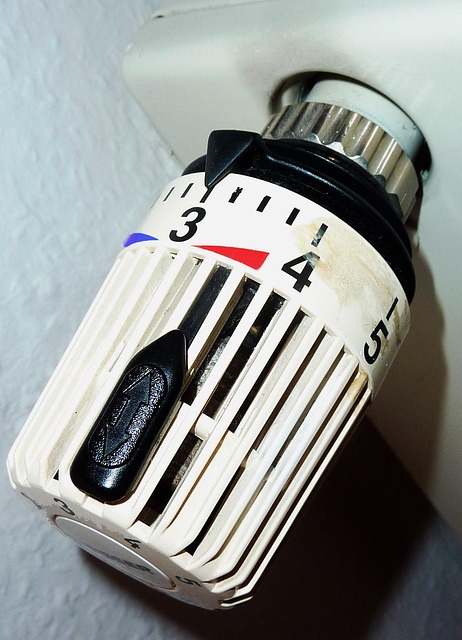Understanding Prostate Cancer: Diagnosis, Management And Care
Prostate cancer affects thousands of men across the UK each year, making it one of the most common cancers in males. Understanding the diagnosis process, available management options, and ongoing care requirements can help patients and their families navigate this challenging journey. Early detection and appropriate treatment significantly improve outcomes, while modern medical approaches offer various pathways tailored to individual circumstances and cancer stages.

How Doctors Approach Prostate Cancer Detection
Medical professionals use a systematic approach to identify potential prostate cancer cases. The process typically begins with routine screening through PSA (prostate-specific antigen) blood tests and digital rectal examinations for men over 50, or earlier for those with family history or higher risk factors.
When abnormal results appear, doctors may recommend additional diagnostic procedures including transrectal ultrasound-guided biopsies, MRI scans, or advanced imaging techniques. These methods help determine the cancer’s presence, location, and aggressiveness level using the Gleason score system. The staging process involves assessing whether cancer cells have spread beyond the prostate gland, influencing subsequent treatment decisions.
Multidisciplinary teams comprising urologists, oncologists, radiologists, and pathologists collaborate to ensure comprehensive evaluation. This coordinated approach ensures patients receive accurate diagnoses and appropriate treatment recommendations based on current medical evidence and individual health profiles.
Prostate Cancer Management Options Available
Treatment selection depends on multiple factors including cancer stage, patient age, overall health status, and personal preferences. Active surveillance represents one option for low-risk cases, involving regular monitoring without immediate intervention while maintaining quality of life.
Surgical interventions include radical prostatectomy, which involves removing the entire prostate gland and surrounding tissues. Modern techniques such as robot-assisted laparoscopic surgery offer improved precision and potentially faster recovery times compared to traditional open procedures.
Radiation therapy provides another primary treatment avenue, delivered through external beam radiation or brachytherapy (internal radiation seeds). Hormone therapy may be recommended for advanced cases or combined with other treatments to reduce testosterone levels that fuel cancer growth. Newer approaches include immunotherapy and targeted drug treatments for specific cancer types.
Essential Prostate Cancer Care Tips
Maintaining optimal health during treatment requires attention to physical, emotional, and practical aspects of care. Regular communication with healthcare teams ensures treatment adjustments when necessary and addresses emerging concerns promptly.
Nutrition plays a crucial role in supporting recovery and overall wellbeing. A balanced diet rich in fruits, vegetables, lean proteins, and whole grains may help maintain strength during treatment. Some studies suggest limiting red meat and high-fat dairy products while increasing omega-3 fatty acids and antioxidant-rich foods.
Physical activity, when approved by medical teams, can help manage treatment side effects, improve mood, and maintain muscle strength. Gentle exercises such as walking, swimming, or yoga may be beneficial depending on individual circumstances and treatment stages.
Managing side effects requires proactive approaches. Common issues include urinary incontinence, erectile dysfunction, and fatigue. Healthcare providers can recommend specific interventions, medications, or supportive devices to address these challenges effectively.
| Treatment Type | Healthcare Provider | Typical Cost Range |
|---|---|---|
| PSA Screening Test | NHS/Private Clinics | Free (NHS) / £50-£150 (Private) |
| Radical Prostatectomy | NHS Hospitals/Private Healthcare | Free (NHS) / £8,000-£15,000 (Private) |
| External Beam Radiotherapy | NHS Cancer Centres/Private Clinics | Free (NHS) / £10,000-£20,000 (Private) |
| Hormone Therapy | NHS/Private Oncology | Free (NHS) / £200-£500 monthly (Private) |
Prices, rates, or cost estimates mentioned in this article are based on the latest available information but may change over time. Independent research is advised before making financial decisions.
Support systems play vital roles in successful cancer management. Family members, friends, and support groups provide emotional assistance during difficult periods. Many patients benefit from counselling services or peer support programmes offered through cancer charities and healthcare institutions.
Regular follow-up appointments enable healthcare teams to monitor treatment effectiveness, detect potential complications early, and adjust care plans accordingly. These appointments typically include physical examinations, blood tests, and imaging studies as required.
Understanding potential long-term effects helps patients prepare for life after initial treatment. Some men experience ongoing challenges requiring continued medical attention, while others achieve complete recovery with minimal lasting impact.
The landscape of prostate cancer care continues evolving with advancing medical research and improved treatment technologies. Staying informed about new developments while maintaining realistic expectations helps patients make well-informed decisions about their care journey. Working closely with experienced healthcare professionals ensures access to appropriate treatments and support services throughout the diagnosis, treatment, and recovery process.
This article is for informational purposes only and should not be considered medical advice. Please consult a qualified healthcare professional for personalized guidance and treatment.




